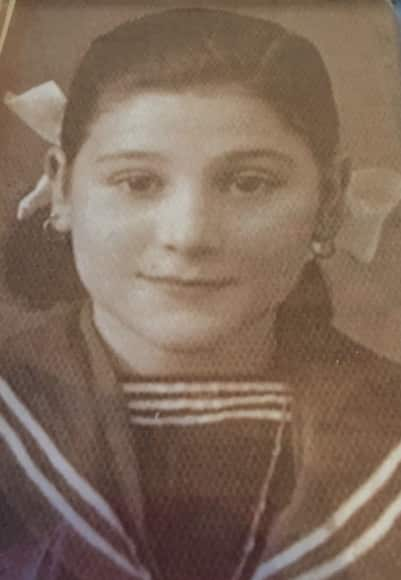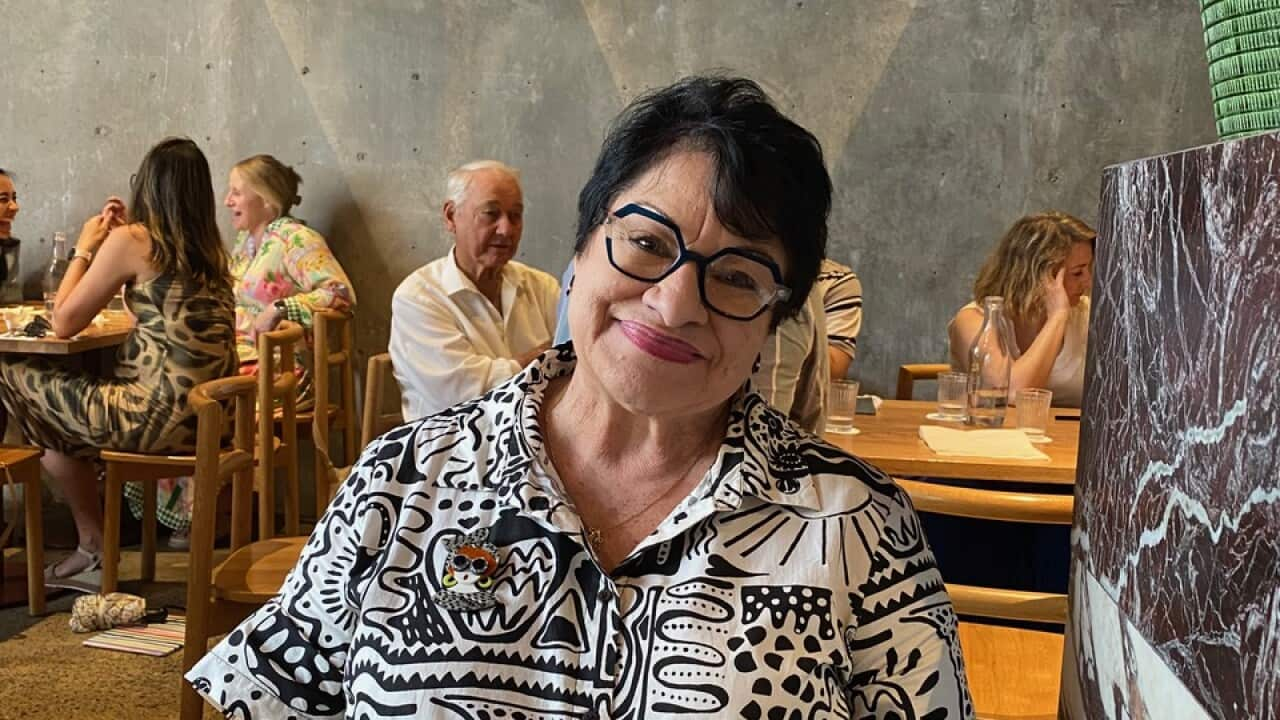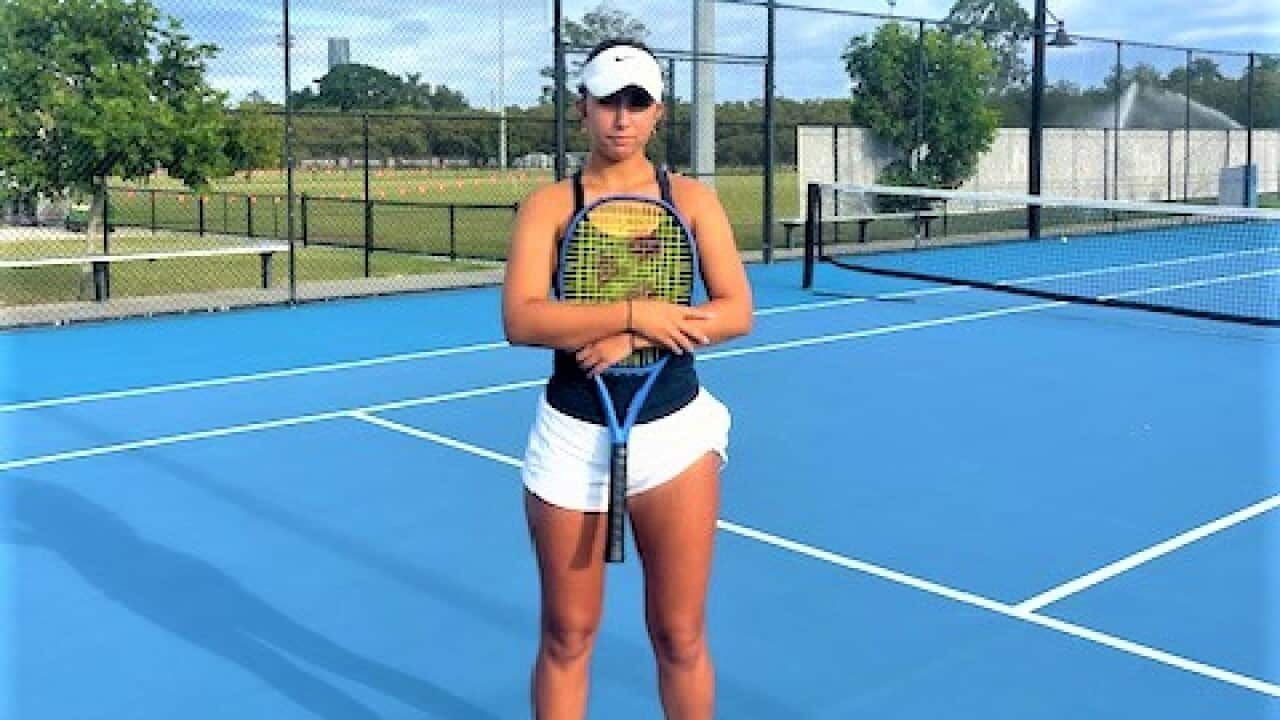Vassa is the youngest child of Sokratis and Anna Solomos. She had two older brothers. The eldest, Yiorgos (George) was 14 years old at the time of the battle of Pinios Gorge. Yiorgos is instrumental in Vassa’s story as most of the information that survived is because of him treasuring the memories of the 17th and 18th of April 1941 and discussing them with Vassa, in great detail, in the years after the war. Vassa penned the story of the battle at Ambelakia in the 80s, The Tumulus, and included it in a collection of short stories.

On the evening of 17th of April 1941, a group of Allied soldiers, mostly New Zealanders, in all likelihood a platoon from D Company, 21st Brigade of the New Zealand Expeditionary Force, arrived at Ambelakia. Their officer asked to see the leaders of the village seeking shelter for the night. Among the leaders was Vassa’s father, who at the time was the principle of the Maniarios School. Among the group of soldiers were four Cypriots who served as translators. Socratis Solomos brought the soldiers to his house to rest and have dinner. Vassa’s mother, with the help of other women, brought out whatever little foodstuffs they had, but despite their best efforts the food was not enough to feed 30 adults. Food shortages were a reality at the time and according to Vassa, many people faced hunger in Greece’s major cities.
Around the table
Vassa’s father apologized for the poor offerings and the officer, seeing how upset their hosts were, sent a couple of soldiers to bring some of their own supplies. As Vassa describes in her book “my father begged our guests to forgive him for the sparsity of the meal. At that, one of the men got up and went down to the inside courtyard on the ground floor, where the men had left their guns and their other belongings. When he returned, his face glowing with happiness he piled up on our humble table tins of various kinds of mouthwatering foodstuffs, delicious little yellow cheeses, butter, coffee, jam and tobacco that perfumed the air. It became a very joyful dinner. My friends and I carried chairs from the neighborhood so that everyone could be seated around the table.”
To 6 year old Vassa, like all the other children and teenagers at Ambelakia, the soldiers were a grand spectacle. They kept their eyes fixed on them throughout the night. The hospitality, fueled by local wine, seemed to have worked wonders on the weary soldiers and soon the family and the other villagers present, found themselves among a group of rather rowdy young men who with the opportunity of a flute they found on a shelf and their own harmonicas twere singing and dancing and being merry. According to Vassa “the war was forgotten” in that atmosphere. “We’d all become one soul that night” speaking to SBS Greek.
In that joyful atmosphere, her father pulled away her brother and said to him:
“George my boy, don’t forget a single moment of this evening because tomorrow all these lads will die”.
Yiorgos returned to the table where the children were eating and told them what his father had said. Describing the moment still vivid in her memory‘we all froze when we heard that”. Later on that night, a thunderous noise filled the air. Six year old Vassa fainted. “There I was, telling everyone not to be afraid and it was me who fainted” she told SBS Greek describing the demolition of the Pinios bridge.
David, the officer from Wales
According to Vassa, the officer’s name was David and he was from Wales. David made quite an impression on the villagers, especially Vassa and her brothers. It was David who told Vassa’s father and the other village leaders that they must evacuate the village during the night as he was concerned that they will be caught in the crossfire in the following day’s battle. So they did. They quickly packed up whatever they could and fled to the mountains.
Daylight found the village deserted, save for a few men who stayed and a few teenagers who tried to stay, among them Vassa’s brother Yiorgos. They were discovered by Vassa’s father and quickly were sent off.
When the battle sounds’ stopped the villagers returned to Ambelakia.
Again, two rather impatient and rebellious teenagers, Yiorgos and Vassilis, had returned to the village earlier and found a few men and the village priest getting ready to bury the dead soldiers at a place where a windmill once stood. Among the men was Vassa’s father. In her book, she describes the scene as follows:
“The sight of the dead was pitiful. Their bodies had very quickly been despoiled; their firearms, ammunition, cigarettes and army clothes had been taken. Greeks had done this. How had they managed to do this so soon I wondered. They must have foreseen the deep darkness that was to come. On the violently stripped chests of each man the ungodly pillagers had placed multi coloured anemones from those blossoming abundantly around.
David was gazing at us with a deathly sweetness. He was the only one who bore on his breast blood –red anemones.
It would seem that they had told him apart from the insignia on his uniform. My father knelt reverently and closed his eyes. When he raised his head, he saw me and he saw Vassilis, but he did not seem at all willing to tell us off. On the contrary, it felt as if our presence was a help to him.
“Off with you to the school and bring down the flag for the lad’ he said.
The village head mumbled:
‘What’s the Greek flag got to do with…”
Truly though which flag would have been appropriate? They came from sundry and faraway homelands. And our own was lost. We brought the flag and covered David in it.”
By the time the villagers returned to Ambelakia, all the soldiers were buried. The burial site was known to the locals as “David’s thirty”. That spot retained that name until 1976 when the bodies were exhumed.
"Go tell the story stranger passing by..."
Forgone but not forgotten
At the time, April 1941, Vassa’s father had said that after the war a monument (έναν τύμβο) should be erected in memory of that sacrifice. However, two years later he was killed. His wish for a monument forgotten - for a long time. But not for Vassa. She remembered and, more importantly, she kept the memory alive all these years. Vassa Solomou Xanthaki wrote the story of the soldiers’ sacrifice and the impact of the battle on her family and the local population in a collection of short stories she published a few years ago. Τhe title of the short story: O τύμβος (the Tumulus).
Last year the municipality of Tempe built a monument at Anemomylos. The catalyst was the Australian Ambassador’s visit to the area. It was from that spot the Australian ambassador to Greece Kate Logan collected soil last May to be sent to the new ANZAC memorial in Sydney, for the Soil Collection Project, part of the ANZAC Centenary commemorations. Soil was collected from four places in Greece: Vevi, Tempe, Rethymno and Platanias (Crete). Vassa Solomou Xanthaki attended the unveiling of the monument at Tempe and received a commemorative plaque, presented to her by the Australian ambassador. Addressing Ms Logan, she said:
“I am not surprised that there are so many women present today. For years I was thinking “how would their mothers’ hear about their deaths? How would their sisters know where they were buried?”
Three soldiers survived from the group that camped at Ambelakia, one Cypriot and one New Zealander. Another one, a New Zealander, was captured by the Germans and executed a few days later. Their names are not recorded in the 21st Battalion’s official history by J.F. Cody. It is mentioned that there are 25 soldiers and one officer unaccounted for.
The search continues.




